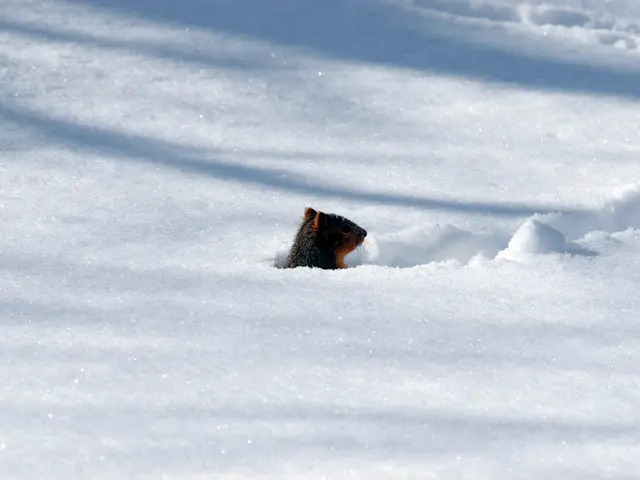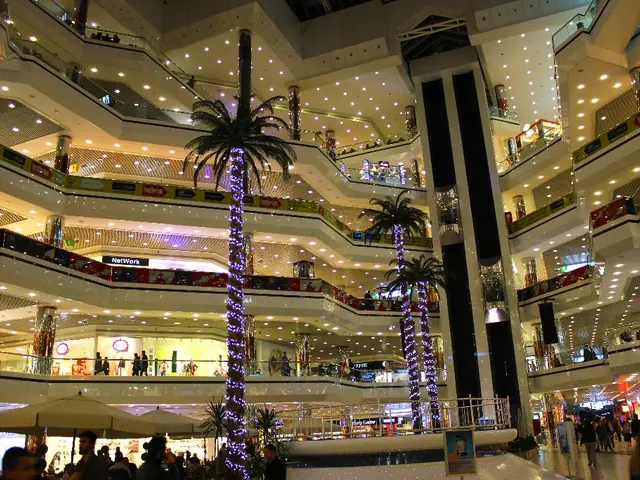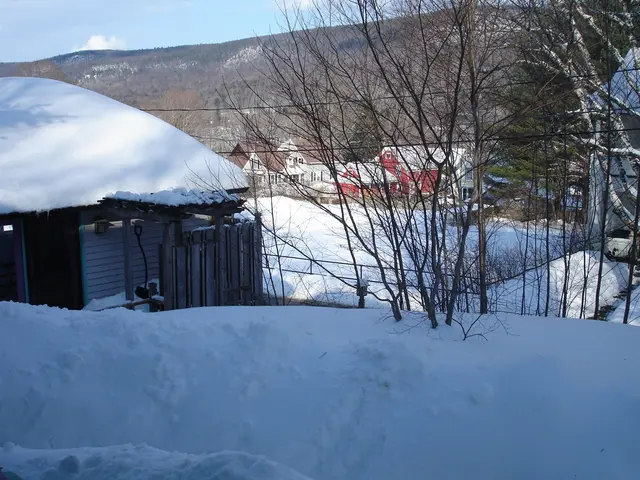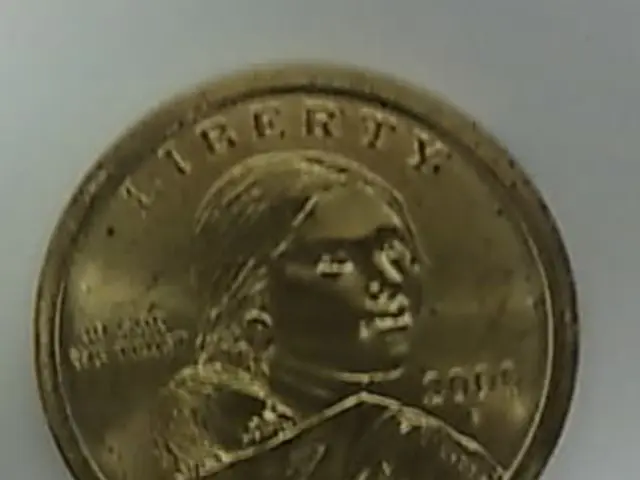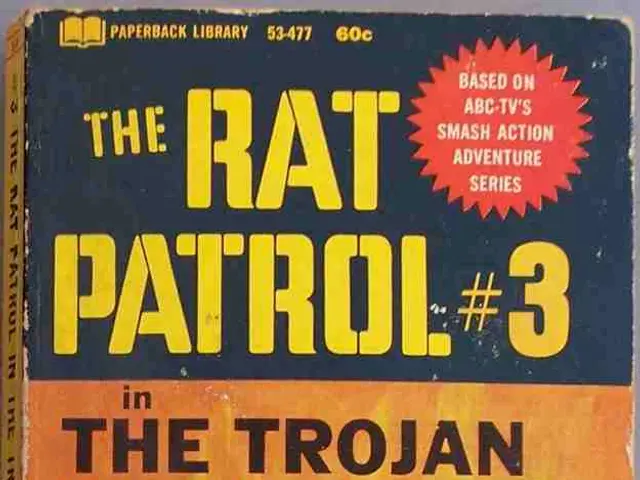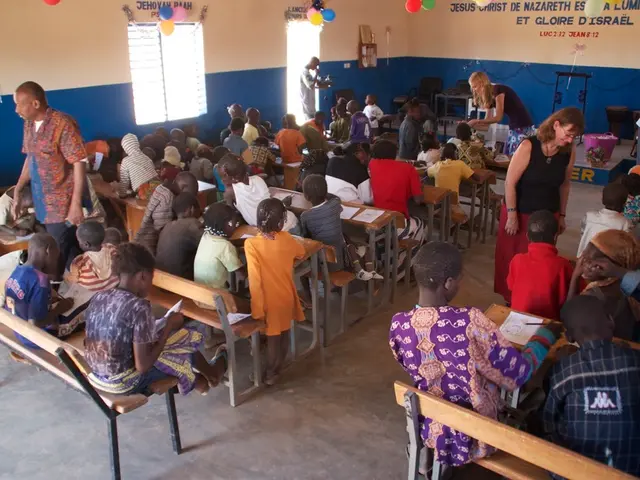United Front in Ukraine: The Coalition of the Willing Stands Firm
In Ukraine, it's understood that Merz is not Scholz
In a United Nations-like alliance, the world's heavyweights gather in Kyiv to strengthen Ukraine's position against Russian aggression. The crusade's latest meeting, attended by major players like Friedrich Merz, Emmanuel Macron, Keir Starmer, and other counterparts, carries immense significance, pressuring the Kremlin into a corner and offering the Ukrainians a glimmer of hope.
Capitalizing on the political climate shaken by Donald Trump, this meeting marks a turning point in the Russian-Ukrainian conflict. The high-stakes summit calls for a 30-day ceasefire, conditional on sanctions pressure, while fortifying Ukraine's defensive infrastructure [1][2]. The collaboration of powerful nations symbolizes an unprecedented unity among Western allies, standing resolute in solidarity with Ukraine.
The Shift in Western Leaders' Presence
Visits from Western leaders, including Friedrich Merz, epitomize the global community's unwavering commitment towards Ukraine's independence and security. These high-profile appearances serve to bolster the nation's military capacities and diplomatic backing, whilst sending a resounding message against Russian hostilities [2][4]. The Coalition focuses on:
- Defensive Strengthening: Enhancing Ukraine's defense systems and securing international assistance.
- Sanctions and Diplomatic Pressure: Leveraging economic penalties on Russia to prompt a ceasefire and amplify diplomatic pressure on the Kremlin.
Growing Apart: Comparing German-Ukrainian Relations Under Olaf Scholz
Germany's level of support for Ukraine has significantly evolved under Olaf Scholz during the duration of the conflict. Initially criticized for being slow to supply military aid, Germany has since boosted its military and financial assistance to Ukraine. The current role of powerful German political figures like Friedrich Merz represents an expansion of the German political community participating in Ukrainian affairs [5][6].
While changes have occurred, the main distinction lies in the increased international cooperation and the higher profile of German politicians in alliances, underscoring a more comprehensive Western stand against Russian actions.
- Increased Military Aid: Germany has provided substantial military assistance to Ukraine, stepping away from initial reluctance.
- Heightened Diplomatic Engagement: The broader participation of diverse German leaders in diplomatic efforts marks a more proactive engagement in resolving the conflict.
In conclusion, the Western alliance, now more intertwined than ever, delivers a unified message against Russian aggression, offering hope to the people of Ukraine. The current events spark discussions about the pivotal role Germany and its new Chancellor, Friedrich Merz, will play in Ukraine's plight for autonomy.
References:[1] Coalition of the Willing to impose 30-day ceasefire on Ukraine (nv.de)[2] Kremlin staging short-term ceasefires (nv.de)[3] Merz's visit to Volodymyr Zelensky (nv.de)[4] Interaction between Eastern Europe and the West (esenf.uni-frankfurt.de)[5] The future of Germany-Ukraine relations (adenauer.de)[6] Scholz and Baerbock's roles in Ukrainian relations (dw.com)
Keywords:- Attack on Ukraine- Ukraine- Volodymyr Zelensky- Friedrich Merz- Emmanuel Macron- Keir Starmer- Russia- Donald Trump- Donald Tusk- Poland- Coalition of the Willing- Ceasefire- Sanctions- Infrastructure support- Diplomatic support- Carrying impact- Increased international involvement- West's stance against Russian actions
- The European Union, aligned with the UN Charter, is strengthening its stance against Russian aggression in Ukraine, demonstrating a commitment to the UN Charter in the face of war-and-conflicts.
- Friedrich Merz, a key political figure, has been making high-profile visits to Ukraine, aimed at bolstering Ukraine's defense systems and diplomatic backing as part of the Coalition of the Willing.
- Keir Starmer, alongside other major players like Emmanuel Macron, attend significant meetings in Ukraine to foreseeable strengthen the country's position against Russian hostilities, marking a shift in general-news politics.
- The United Nations-like alliance of Western powers, including Germany, is working towards fortifying Ukraine's defensive infrastructure and applying diplomatic pressure on the Kremlin, showing an unprecedented unity in their stance against war-and-conflicts.

